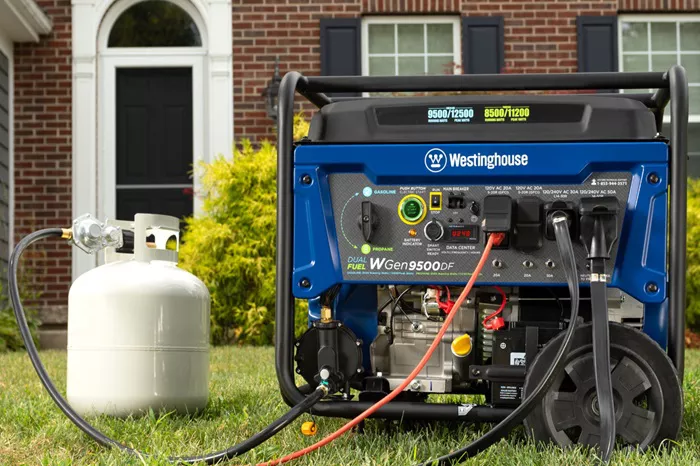Choosing the right generator for your home is essential for ensuring uninterrupted power during outages. With various types, fuel options, and technical specifications, selecting the best one can be overwhelming. This guide breaks down everything you need to know to make an informed decision.
Types of Home Generators
Home generators are categorized based on their operation, fuel type, and power capacity. The main types include:
Portable Generators
Portable generators are versatile, temporary power sources that can be moved around. They are ideal for short-term use during power outages or outdoor activities.
Pros
- Affordable compared to standby generators.
- Can power essential appliances like refrigerators, lights, and fans.
- Easy to store when not in use.
Cons
- Require manual setup and fueling.
- Not suitable for whole-house power.
- Produce noise and emissions.
Best for: Emergency backup for small homes or camping.
Inverter Generators
Inverter generators are a more advanced type of portable generator that produces clean, stable power suitable for sensitive electronics.
Pros
- Fuel-efficient and quieter than conventional portable generators.
- Safe for laptops, smartphones, and medical devices.
- Lightweight and portable.
Cons
- Higher cost than standard portable generators.
- Limited power output (usually under 5,000 watts).
Best for: Powering electronics and small appliances.
Standby Generators
Standby generators are permanently installed outside the home and automatically turn on during a power outage.
Pros
- Provides seamless backup power for the entire house.
- Runs on natural gas or propane, eliminating the need for refueling.
- Quiet and low-maintenance.
Cons
- Expensive initial cost and installation.
- Requires professional setup.
Best for: Whole-house backup in areas with frequent outages.
Solar Generators
Solar generators use solar panels to store energy in batteries, offering an eco-friendly power solution.
Pros
- No fuel costs or emissions.
- Silent operation.
- Low maintenance.
Cons
- Limited power output and dependency on sunlight.
- High upfront cost for large-capacity systems.
Best for: Eco-conscious homeowners or supplemental backup power.
Fuel Options for Generators
Different generators run on various fuel types, each with advantages and limitations.
Gasoline
Pros: Readily available, affordable.
Cons: Short shelf life, flammable, inefficient for long-term use.
Diesel
Pros: More fuel-efficient, longer lifespan.
Cons: Noisy, higher emissions, expensive fuel.
Propane
Pros: Clean-burning, long shelf life, good for standby generators.
Cons: Requires large storage tanks, lower energy output than diesel.
Natural Gas
Pros: Continuous supply (if connected to a gas line), clean fuel.
Cons: Requires professional installation, may not work during gas line disruptions.
Battery/Solar
Pros: Renewable, silent, no fuel costs.
Cons: Limited runtime, weather-dependent.
How to Choose the Right Generator Size
Selecting the correct generator size depends on your power needs.
Calculate Your Power Requirements
- Make a list of essential appliances and their wattage.
- Add starting watts (higher than running watts for motors).
- Total wattage determines the generator size needed.
Example
Refrigerator: 800W (1,600W starting)
Lights: 200W
Sump pump: 1,000W (2,000W starting)
Total: 3,800W required (minimum generator capacity).
Generator Sizing Guide
Small (3,000–5,000W): Powers essentials like fridge, lights, and a few outlets.
Medium (5,000–8,000W): Runs most household appliances but not the entire house.
Large (10,000W+): Whole-house coverage, including HVAC systems.
Installation and Safety Considerations
Proper Installation
- Portable generators must be used outdoors to prevent carbon monoxide poisoning.
- Standby generators require professional installation and a transfer switch.
Safety Tips
- Never backfeed power into the grid (illegal and dangerous).
- Use heavy-duty extension cords rated for generator use.
- Store fuel safely in approved containers.
Maintenance Tips for Longevity
- Change oil and filters regularly.
- Test the generator monthly.
- Keep fuel stabilized or drained if unused for long periods.
Conclusion
Choosing the right home generator depends on power needs, fuel availability, and budget. Portable generators are great for short-term use, while standby generators provide seamless backup. Always prioritize safety and proper sizing to ensure reliable power during outages. By understanding these key factors, you can select the best generator to keep your home running smoothly.

